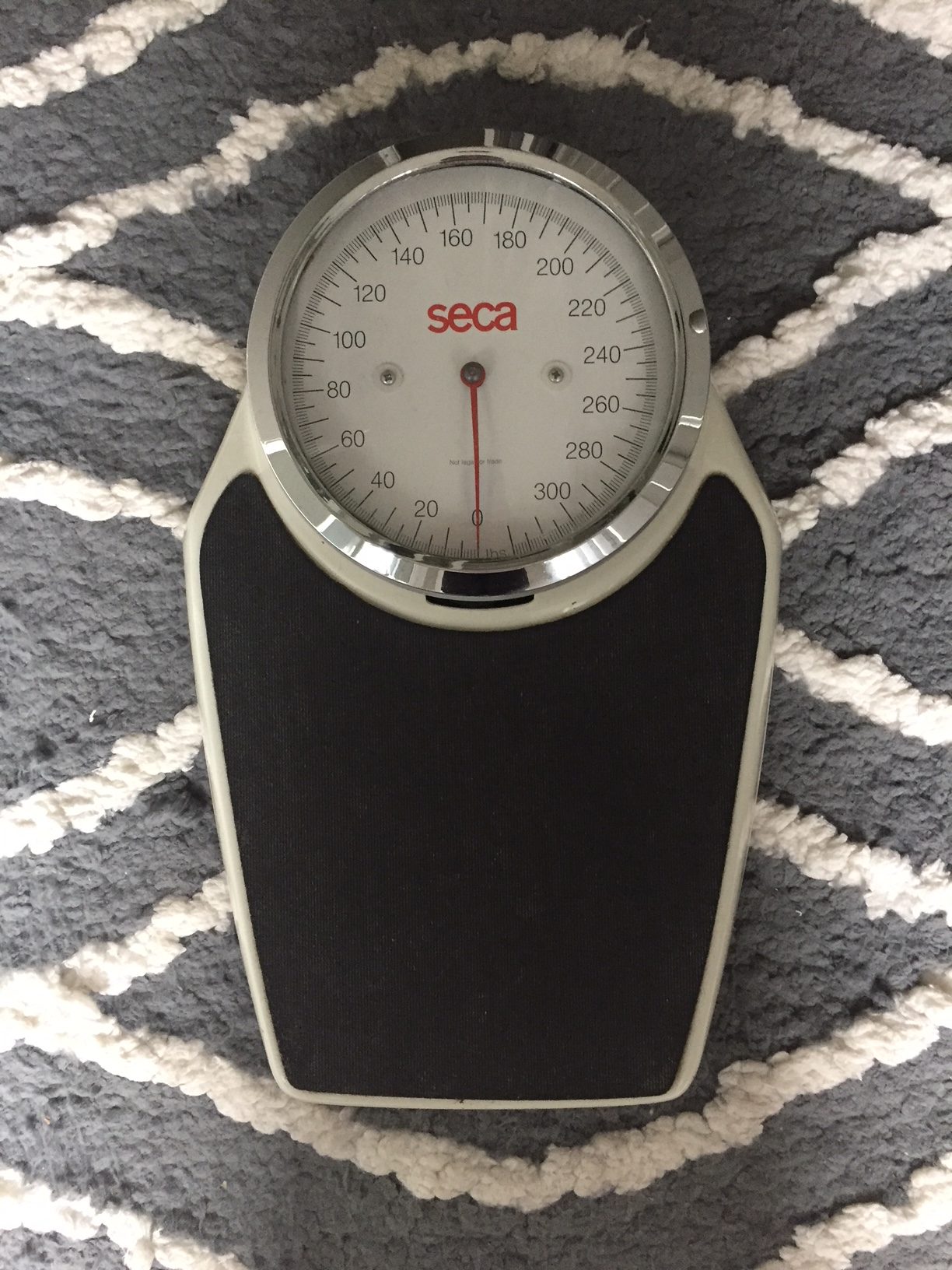Have you ever gotten on the bathroom scale and wish you hadn’t? I’m hearing, “All the time!” Right? How often do we climb on those things, our best friends or worst enemies, full of hope for the dropping of at least a fraction of a pound (really, is that too much to ask???) and experience crushing disappointment!
Let’s say we’ve been good the day before, and expect a reward from our little needle-eyed friend. But no. That needle, or digital readout, refuses to budge. So we look forward to the next morning and climb back on. Nada. But we’ve been good, sticking with our prescribed food plan, eschewing the naughties. Our halos should be blinding anyone in our vicinity! And another day goes by. Surely now we’ll be rewarded. Once again, a big goose egg. We are so disappointed by now by the deprivation with nothing to show for it we are tempted to cave in and eat all the things we’ve been denying ourselves. Does this sound familiar?
I’m not going to get into the hazards of the dreaded plateau, because our metabolisms are so varied that those buggers will be different for everyone. But what do we do? Stay off the scales for an eternity?
Well, maybe. As usual, there is no one right answer for everyone. You’ve probably heard, or experienced, the Weight Watcher weekly weigh-in. Yet, they are not for everyone. An article published by Harvard Medical School at first suggests daily weigh-ins for those who have already lost the weight in order to catch fluctuations and get back on track. That statement is quickly followed by the important point that dieters can become obsessive, and take drastic measures like skipping meals and improper calorie deficit to keep the scale readings moving downward.
Thankfully, there is more knowledge coming to light about weight fluctuations. We all know about water weight that can change frequently. Even with consistent healthy eating habits and a solid exercise plan our weight can still move up and down. Add to that Harvard Medical points out that what you see on the scale can’t all be fat, which is what we’re aiming to lose. Ever lost two pounds overnight, according to the scale? I have. Hallelujah! Broke into my happy dance. But Harvard pointed out that you’d need a seven-thousand calorie deficit that day to lose two pounds of body fat, which of course doesn’t happen. What a buzz kill! But they’re right. These fluctuations in weight will drive us crazy!
Take this little tidbit of a recommendation: Some programs insist you weigh yourself daily, and if you move the scales upward by any more than two pounds their authors insist on some crazy scheme like eating only apples for a day, or apples all day then some red meat for dinner. Yikes! Also, keep in mind that we’re trying to build in muscle mass, which, of course, will add pounds as you lose fat. That’s why some programs suggest staying off the scales entirely and measuring inches where you want to lose the fat. And if you hate the bathroom scale and dread what it might say, that’s probably a good idea.
From what I’ve seen, suggestions out there are almost as varied as weight programs. Weigh yourself 4-5 times a week as you get closer to your ideal weight, down from 5-6 times a week when you have more to lose and get buoyed by seeing the pounds drop when there’s more to lose. Still, there are some Registered Dieticians out there still advocating for the daily weigh.
As for me, I’ve discovered that it’s in my nature to want immediate gratification, and if the scales don’t move consistently (an unreasonable demand, certainly!) then I become frustrated. So, for me, daily weighing is dangerous; I might just start to cheat in frustration. I need to be rewarded for my good behavior. So, for me, and people like me, a weekly weighing is probably the best way to go.


